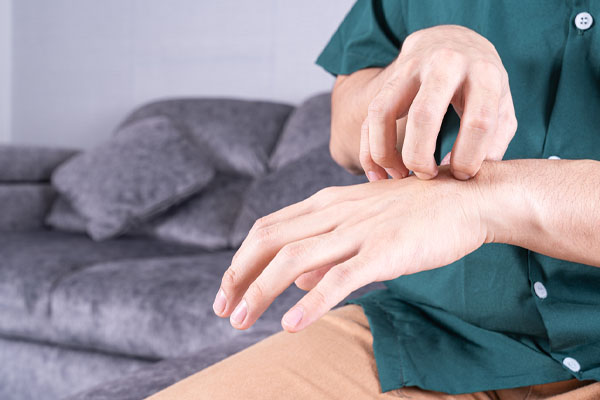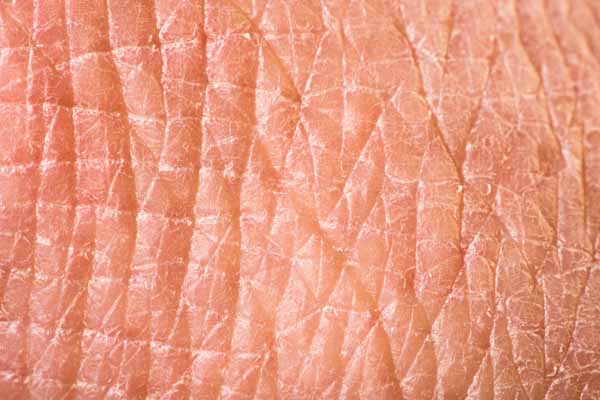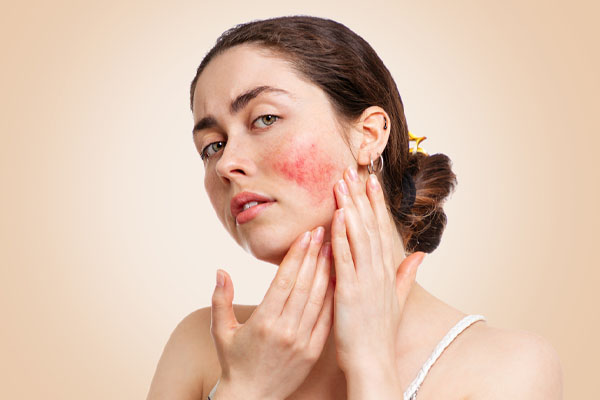How Does Your HVAC Affect Your Skin?

Aside from regulating the home’s temperature, your HVAC system also balances indoor humidity. Without a heating and cooling system, most homes feel muggy and hot in the summer and overly cold in the winter. Fortunately, your HVAC system can help maintain a comfortable and habitable home. However, you can’t always count on it to be gentle on your skin. HVAC and skin issues are notorious in homes that have central forced-air HVAC systems at home. This article discusses how your heater or air conditioner may affect the overall integrity, health, and look of your body’s protective layer.
HVAC and Skin Issues: What You Should Know
Table of Contents
Here are several of the common issues that homeowners experience:
Excessive Drying

The cold, dry conditions outside are likely the culprit if you have dehydrated skin in the winter. However, the same heating system that’s causing your sinuses to get blocked, drying your mouth while sleeping, and drying out your nose is probably also drying your skin. If your heating unit causes occasional nighttime nosebleeds, it can also damage your skin.
In-floor heating systems and radiators produce radiant heat, while furnaces produce warm air. This warm air can dry out the indoor moisture the same way a clothes dryer, hair dryer, or an open stove does. The bad news is that furnaces aren’t equipped with functions and features to add moisture back into structures when they lose too much moisture. Lack of indoor humidity is likely the cause of your dry, cracked lips and hands and recurring eczema problems. Consult your trusted HVAC contractor about installing a whole-house humidifier.
Related Article: HVAC Allergies: How Your HVAC System Can Limit Seasonal Allergies
Dramatic Temperature Changes & Red, Ruddy Complexions

Modern humans are conditioned to stay in relatively static environments. You are likely in a space close to 70 degrees Fahrenheit, whether at home or work. Stepping outside in sweltering or freezing temperatures can be an absolute shock. It is nearly unbearable to sit in a hot car when the seat belts, steering wheel, and seats are hot to the touch or sit in a cold car and wait until the heater comes on. Small temperature increases or decreases can feel like a big deal when your thermostat isn’t acclimated to change.
Therefore, moving from scorching or frigid environments into a more moderate indoor climate can cause your face to become red and rosy. The slight flush may be aesthetically appealing in certain circumstances, but this can indicate fast-dilating blood vessels which are antecedent to eczema or rosacea. You can help protect your skin by building your tolerance to slightly warmer or cooler temperatures. This lets you maintain home temperatures that aren’t vastly different from the outdoor temperature.
Excess Moisture & Skin Rashes
Drying out the indoor air isn’t the only way your HVAC system causes skin issues. An air conditioner can leave you with too much moisture inside your home if it is not maintained properly or the unit is incorrectly sized for your home. This is likely the reason if you have a cool home when the air conditioning unit is switched on, but it still feels clammy or muggy.
Excessive moisture can result in skin issues like clogged pores, acne breakouts, and rashes. This can be easy to resolve as you only need to change your HVAC air filter. However, if you have a large family and frequent steamy cooking and hot showers take place, your air conditioner may not be able to regulate the humidity properly. Ensure that you discuss it with your trusted HVAC technician because they can provide you with the best solution for your particular case. For instance, some may recommend installing a whole-house dehumidifier.
Related Article: Benefits Of A Whole-Home Dehumidifier
Decreases in the Natural Production of Oil
Too dry indoor air can impact how your skin takes care of itself. Having an excessively dry living environment may cause your skin to generate much less oil. This can result in premature skin aging as it expedites the formation of fine lines and wrinkles.
Ways To Stop Your HVAC System From Having A Negative Impact On Your Skin

During winter, one of the best ways to protect your skin from the damage high indoor heat can bring is to stay hydrated. Drink a lot of water throughout the day and drink less caffeine. Eat plenty of water-dense, vitamin-rich foods, such as vegetables and fresh fruits. These will boost your skin’s health with powerful antioxidants and phytonutrients.
Use heavier skin creams instead of the lightweight, water-based moisturizers you utilize in the summer. Search for products loaded with natural moisturizing agents like coconut oil, cocoa butter, aloe vera, and Shea butter. Ensure that you apply skin cream liberally before going to sleep.
Moreover, it is essential to mitigate HVAC-linked concerns directly affecting your skin. Regardless of the temperatures outside and how hard your HVAC system operates, your indoor humidity should always be balanced.
Streamlining Your Home’s Envelope
Humidity issues may be associated with how tight your home’s envelope is instead of your HVAC unit. The home envelope is how airtight the building is. If there isn’t a sufficient natural flow of air or mechanical ventilation because of not enough ventilation in the attic or other factors, your home may be too dry or too moist.
Changing Your HVAC Air Filter
Failing to replace your HVAC air filter can make your system struggle to do its job. Humidity regulation is likely the first area to fail. Ensure that this component is replaced at least once every one to three months. Each home has varying filter replacement frequency, so check monthly and change it when necessary.
Related Article: 7 Reasons Your Filter Isn’t Improving Your Indoor Air Quality
Lower Your Thermostat

Establish and stick to a moderate thermostat setting in the winter. Cranking the temperature as high as possible will only increase your energy expenses, create dry, unhealthy-looking skin, and stress your sinuses and nasal passages. Having a lower and reasonable thermostat setting will also keep you from having a bright red, flushed look when coming inside from the outside cold or heat.
Think About Installing Integrated HVAC System Accessories
You should consider installing a whole-house dehumidification or humidification system. Your skin isn’t the only thing that will benefit when you establish and maintain the right indoor moisture level. It will also bolster your indoor air quality, create a comfier living space, and limit the likelihood of developing mold problems. Whole-house humidifying and dehumidifying equipment can be easily integrated with your existing HVAC unit.
Related Article: Simple Tips For Pet Owners To Improve Their Indoor Air Quality
Conclusion
Using your HVAC unit shouldn’t take a severe toll on your skin. However, by setting the thermostat too high, failing to conduct basic system upkeep, and having too much or too little humidity, you may end up with drier-than-usual skin prone to rosacea, acne, and eczema and subject to faster aging.
Call Hart Home Comfort For All Of Your HVAC Requirements

For exceptional heating and cooling services in Nassau County, Suffolk County, and Queens, New York, call Hart Home Comfort. Our company has the best professionally certified technicians, and they can do excellent HVAC replacements, repairs, tune-ups, and installations. Our friendly techs have the knowledge, skills, and experience to service your HVAC system accurately.
Our company offers highly affordable heating and cooling service prices in the area. We can help improve your energy efficiency, indoor air quality, and comfort while lowering your energy bills through our maintenance services. We can also provide you with the best HVAC repair or replacement system within your budget if you need it. We back all of our work with a guarantee. Schedule a service appointment with Hart Home Comfort today. Call now and get a free, in-home estimate.
For any questions about what Hart Home Comfort can do for you, give us a call today. Click here to contact us now or call us at (631) 667-3200 to find out more! Click the link to view our service area.
